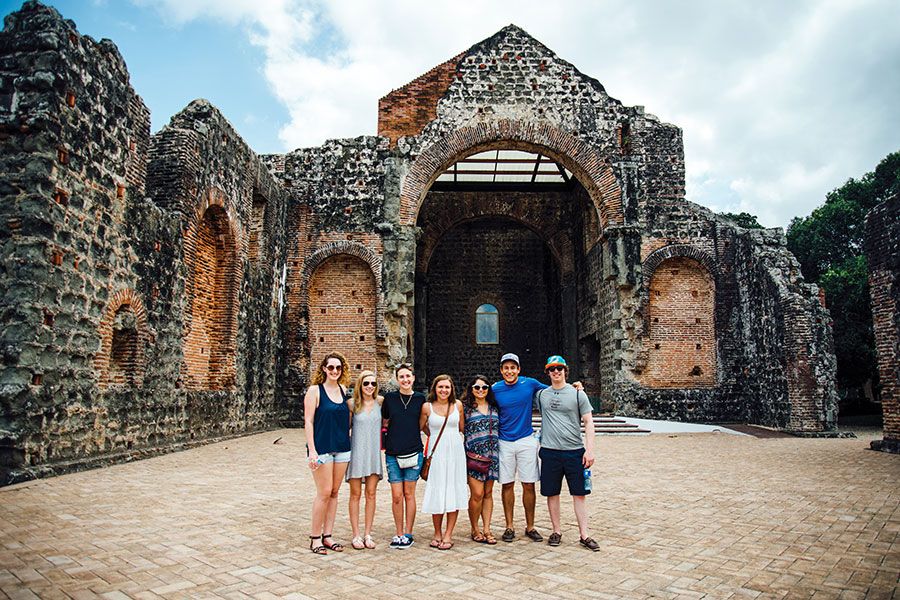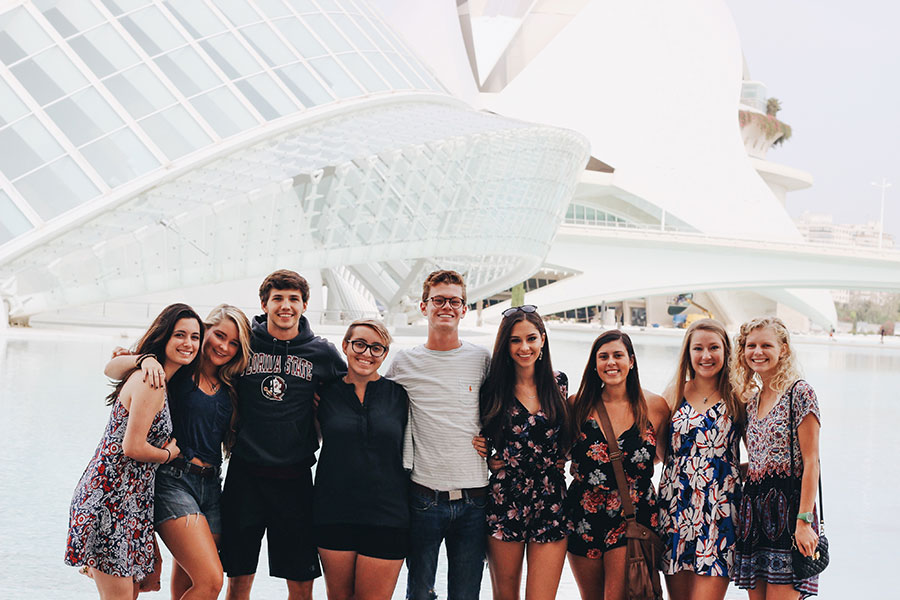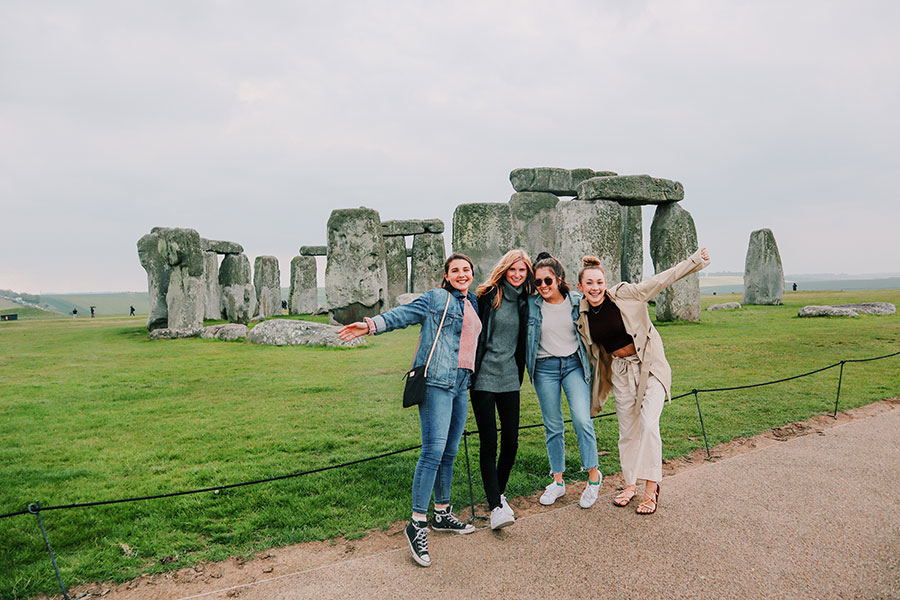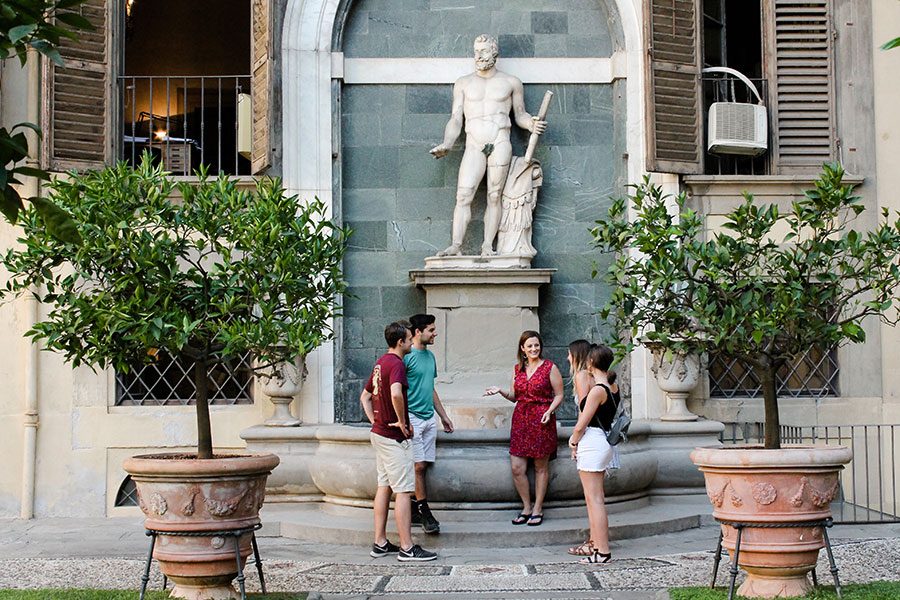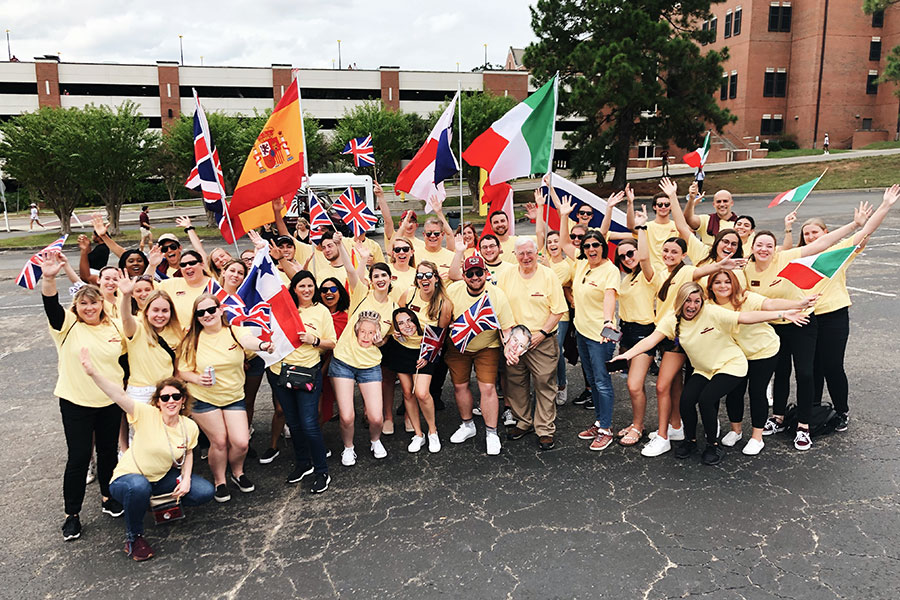
In every corner of the globe, Florida State University students, faculty and staff are connecting with different cultures and developing research partnerships.
FSU is celebrating International Education Month this November to highlight the vast array of opportunities available to the FSU community both on and off campus.
“Florida State recognizes the value of global connections and global perspectives as essential to the life of our university,” said Sally McRorie, provost and executive vice president for Academic Affairs. “Internationalization has become a fundamental part of our core values and goals at FSU, and a key component of how we best serve our state and the world.”
Already recognized as a leader in international education and research, Florida State is continually advancing its mission to expand international outreach. In fact, increasing global and cultural competencies among the FSU community is part of the university’s strategic plan.
“Internationalization isn’t just studying abroad,” said Assistant Provost Stephen McDowell, who chairs the university’s Internationalization Outreach Committee. “Its reach is comprehensive — from courses to extracurricular activities and from co-curricular activities to faculty research. All different parts of the FSU community have a stake in internationalization.”
Here are some of the ways Florida State engages students and faculty to explore different cultures and global issues:
STUDYING ABROAD
FSU provides students with a variety of options for studying internationally, including through FSU’s International Programs and Global Exchanges.
International Programs offers FSU students study abroad opportunities in 20 locations and 60 disciplines across the globe, including year-round study centers in London; Florence, Italy; Valencia, Spain; and Panama City, Panama.
Last fall, Florida State placed No. 11 among national universities in the number of students studying abroad, according to the Open Doors report from the Institute of International Education.
Nearly 2,000 FSU students studied abroad during the 2018-2019 academic year. That includes 264 students who took part in the First Year Abroad and First Semester Abroad programs, which allows students to complete the first 12 months or first semester of their FSU careers studying abroad.
In addition, a school-record 28 FSU students studied or interned around the world this summer thanks to prestigious Benjamin A. Gilman International Scholarships from the U.S. Department of State. Gilman Scholarships are available to Pell Grant recipients, making international study opportunities available for students who have financial barriers.
Garrett Brown, a senior from Altamonte Springs, Florida, studied with fellow international affairs students in Prague during the summer of 2019. He said the experience, run by FSU faculty at Prague’s Charles University, brought his coursework to life.
“It is one thing to learn about fascism, communism, the breakup of Yugoslavia and their respective human rights violations in a book or lecture, but it is another thing to be able to see evidence of them and meet with those who have first-hand experiences and stories,” Brown said.
Brown also said studying abroad built his confidence and allowed him to explore what the world has to offer.
“There is so much to see and so much to learn,” he said. “You just have to get out there and find it, and I think studying abroad helped with that immensely.”
In addition, FSU’s Global Exchanges program offers students the opportunity to study at one of 45+ international partner universities in more than 20 different countries while allowing students to pay FSU tuition and fees and use their financial aid for the experience.
Maia Hass, a senior from Tampa who is studying marketing and international affairs, went on an exchange to Hanyang University in South Korea last spring.
“The most beneficial thing about doing a global exchange is the various interactions I had with people from all over the world,” Hass said. “While in Korea, I made a group of best friends that consisted of me, the American, a guy from Brazil, another from Slovakia, another from Spain, a girl from Australia and another from Vietnam. Never have I been in such culturally diverse group that gave me the ability to truly understand different cultural perspectives.”
SCHOLARLY RESEARCH
Faculty research achievements and connections also have expanded FSU’s global footprint and international ties. The National High Magnetic Field Laboratory and Learning Systems Institute (LSI) are examples of how Florida State is tied to the research community throughout the world.
Thousands of visiting scientists from universities and institutes around the globe come to the MagLab to conduct groundbreaking research at the largest and highest-powered magnet laboratory in the world. During any given year, the MagLab attracts researchers from 50 different countries. In addition, the MagLab staff includes individuals who hail from 60 different countries who speak 30 different languages.
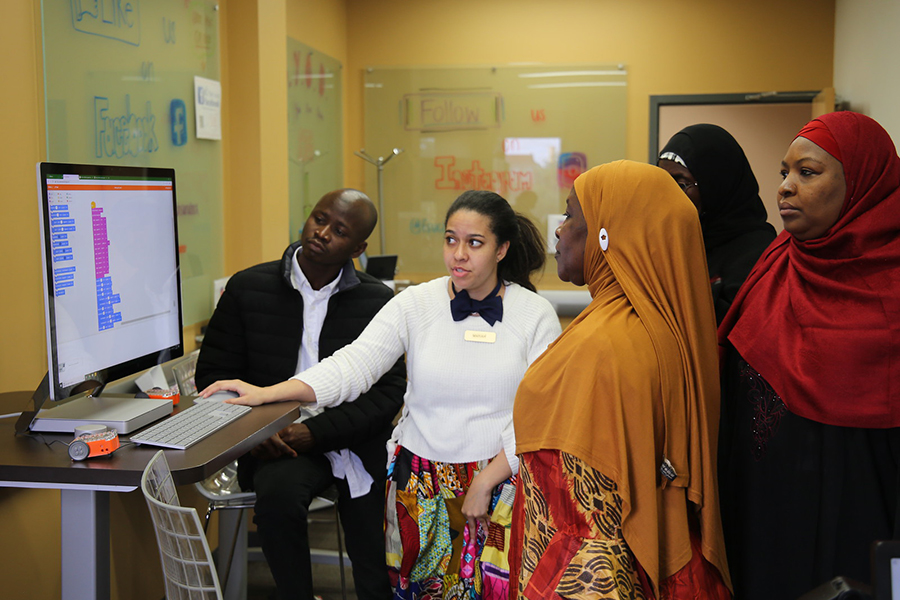
LSI, which works to improve educational opportunities both at home and in developing countries, is celebrating its 50th year at Florida State University this November. Over the past 50 years, it has amassed more than $500 million in grants and contracts and worked to establish educational programs in 25 countries. LSI has 65 research faculty and staff and runs projects in Nigeria, Honduras, Pakistan and Ukraine. They also bring Community College administrators from around the world to FSU for training and work on issues related to math education and Florida’s state standards.
Florida State is recognized regularly as a top producer of Fulbright U.S. Scholars. During the 2018-2019 academic year, FSU produced a school record of nine faculty scholars, which ranked second in the nation among research institutions. This year, seven more FSU faculty from a variety of disciplines are conducting research and teaching across the globe — from China to Nambia to Norway — thanks to the U.S. Fulbright Scholar Program.
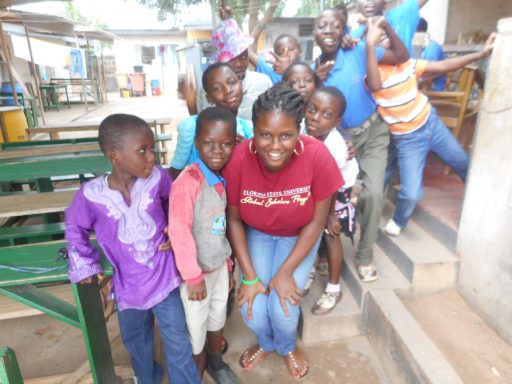
FSU students are also conducting research abroad thanks to the Global Scholars program, which helps them secure summer internships at nonprofit organizations in Asia, Africa and Latin America. The program, coordinated by the Center for Undergraduate Research and Academic Engagement (CRE), provides students with a challenging academic and personal student development experience that is both low-cost and high-impact. Global Scholars receive training before departure, complete a class-based research project during their internships, and connect their experience abroad back to the Tallahassee community in the form of a capstone project upon their return. Last summer, 45 FSU students participated in the program.
GLOBAL CITIZENSHIP CERTIFICATE
FSU’s Global Citizenship Certificate prepares undergraduate students for the new challenges of living and working in an increasingly globalized world by providing opportunities for learning both inside and outside of the classroom.
The certificate requirements include four academic courses, a sustained international or intercultural experience, and attending eight or more intercultural events.
FSU senior Chanelle Dupuis said that she now better understands other cultures and learned how to become a global citizen.
“I was exposed to many new ways of thinking and new perspectives on the world,” Dupuis said. “I believe this exposure has shaped me as an individual and helped me in my research and other classes.”
Experiences required by the Global Citizenship Certificate help build and foster a culturally rich learning environment for all students, said Elçin Haskollar, program director for the certificate.
“It expands experiential, cross-cultural and collaborative learning opportunities; it promotes interaction and understanding among students of all cultures; and it helps us develop a globally-minded FSU community,” Haskollar said.
INTERNATIONAL STUDENTS
Approximately 2,000 international students are enrolled at Florida State University from more than 120 countries and regions. This fall, 464 new international students began studies at FSU, which was an increase from fall 2018.
One of the international students is Omar Mohammad Al Busaidy, one of nine new Fulbright students on campus this fall. Al Busaidy, from the United Arab Emirates, is pursuing a master’s degree in international affairs.
Al Busaidy said it’s been very easy to integrate with everyone at Florida State, and he recently experienced his first football tailgate.
“We don’t have things like tailgates in the UAE,” Al Busaidy said. “It was different. It was definitely a new, cultural experience and pretty cool. FSU students are really good ambassadors for helping international students assimilate around campus.”
The Center for Global Engagement’s International Student & Scholar Services provides orientation, immigration advising, and ongoing support to international students as well as to over 400 international visiting scholars and faculty.
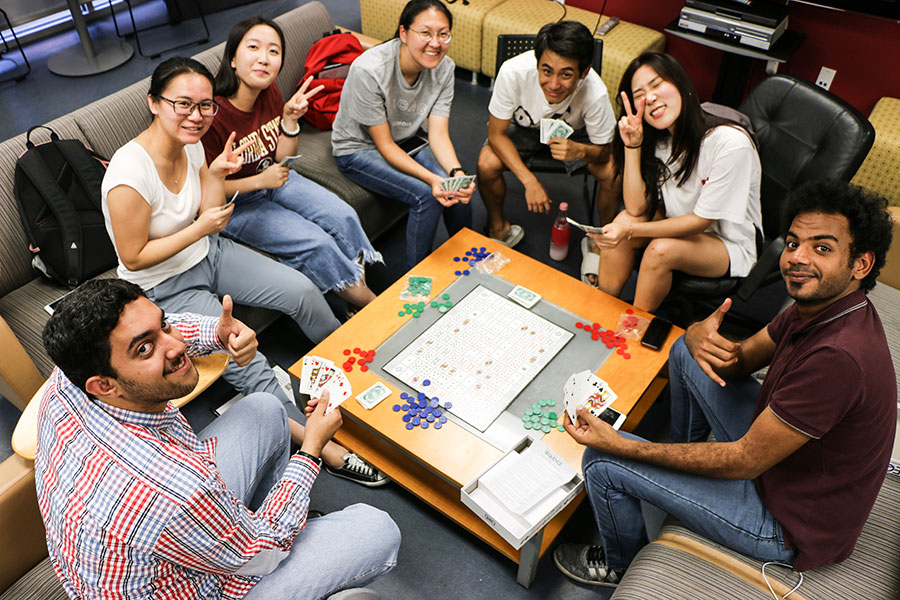
The Frederick L. Jenks Center for Intensive English Studies (CIES) offers a place where international students can develop and improve their English proficiency skills so they can use the language effectively in order to be successful at an American university.
The center’s goal is to help international students gain the English language skills and cultural knowledge needed to succeed at the university level and in the real world. Hundreds of students enroll in CIES courses and take part in “field trips” — like attending football games — to immerse themselves in American culture.
CAMPUS ENGAGEMENT
Students, faculty and staff don’t have to travel far to make global connections — there is a plethora of activities and programs right on campus. The Center for Global Engagement’s Engage Your World Intercultural Dialogue Series features guest speakers who explore a range of challenging global issues.
The FSU community also enjoys authentic international cuisine and music at Global Café luncheons held on select Fridays each fall and spring; these luncheons also support students groups by serving as a fundraiser for the co-hosting organization.
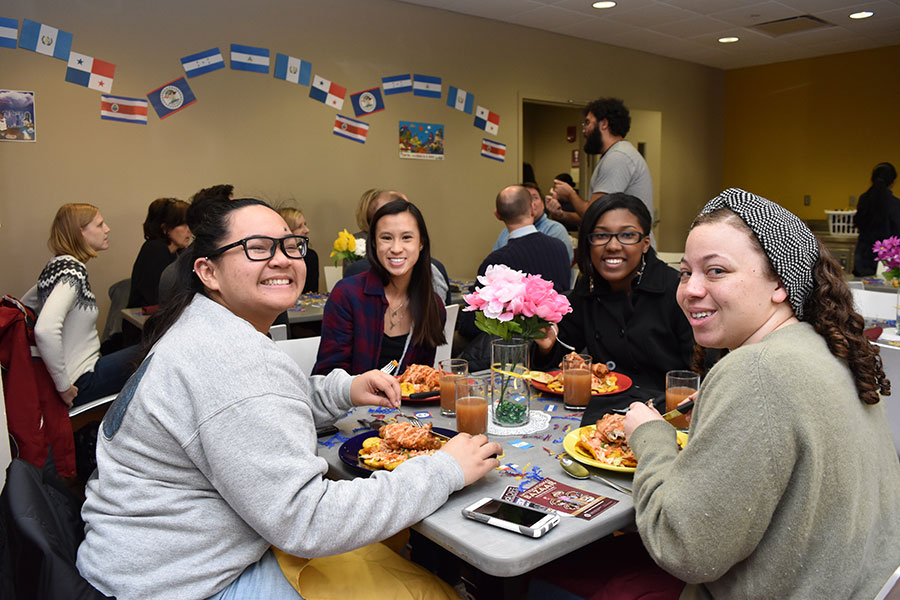
Every Friday from 5–6:30 p.m. the FSU community gathers for International Coffee Hour in The Globe. Students, scholars, faculty and community members from around the world enjoy refreshments from a featured culture.
The Center for Global Engagement also coordinates the Global Ambassador Program, which gives international students and visiting scholars at FSU the opportunity to be cultural ambassadors around campus and in the community. CGE also runs the Global Noles Mentor Program, which provides leadership opportunities for FSU students as they mentor and provide support for FSU’s inbound exchange students. The Global Noles assist these incoming exchange students with adjustment to campus life and help them meet new friends and expand their knowledge of on and off-campus resources and services.
In addition, the FSU Student Government Association supports hundreds of registered student organizations (RSOs) on campus, many with international purposes or connections.
Each of these programs and activities highlighted — along with several others that are featured during International Education Month — are helping ensure that Florida State University provides a diverse, culturally rich learning environment for students, faculty and staff. For a full list of events, visit cge.fsu.edu/iem.
For more information on international education and FSU’s global footprint, visit http://global.fsu.edu.





